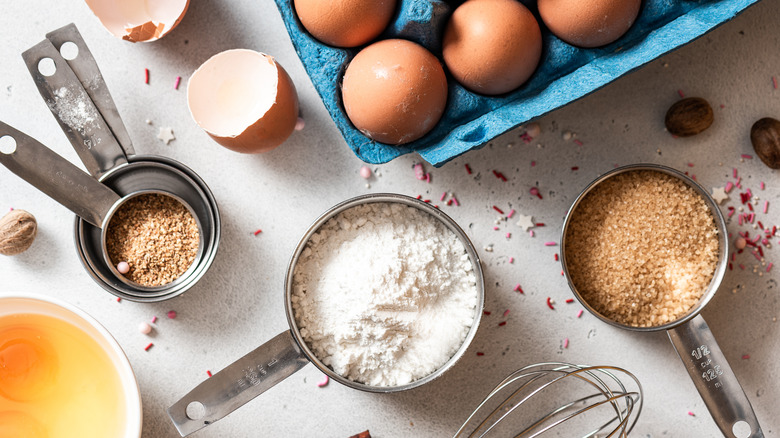Baker Reveals What You're Doing Wrong With Your Holiday Cookies
The only thing as enjoyable as eating cookies is baking them, especially around the holidays. Whether you're making treats to leave out for Santa or making to pass out to coworkers and friends at your next holiday party, Christmas cookies are one of the highlights of the season. According to one survey by Fleischmann's Yeast and Karo Syrup brands (per PR Newswire), 73% of people get more excited about baking this time of year, with 61% admitting that they bake three or more batches. Sugar cookies, gingerbread, peanut butter blossoms ... oh my!
However, there are a few tricks to ensuring your cookies turn out just like the recipe you found on Pinterest promises. While it's likely that you may know some tricks of the trade — like letting the butter soften ahead of time or chilling your dough before popping it in the oven — it's always good to get an expert opinion, as well, just to make sure you're not missing anything.
To help you bake better Christmas cookies this year, Mashed sat down with Elizabeth Nelson, Test Kitchen Manager at popular baking brand Wilton. Here's what she says is the biggest mistake people make with their homemade cookies.
Read the recipe thoroughly before you begin baking
In all your excitement to get baking, many people often simply skim the recipe you found online without really reading it in detail. While that might not seem like a big deal — after all, you know what you're doing! — it turns out that might be your downfall.
According to Wilton's Elizabeth Nelson, you've already started off on the wrong foot. "The biggest mistake people make is not thoroughly reading the recipe before they get started," she told Mashed. "It seems simple enough, but recipes often have a lot of complex details that can get overlooked. My biggest tip is to thoroughly read the recipe first, ensure you have proper quantities of all the ingredients, and check expiration dates before you start the baking process."
The Kitchn agrees with her advice, noting that professional chefs don't just read recipes, they examine them. In fact, the writer says that when she attended cooking school, her instructors had the chefs rewrite recipes in their own words before even picking up a pan. While you don't have to go to those levels, it is important to know the lay of the land before you get started. "Baking is more of an exact science than cooking is, so precision throughout every step of the process — including ingredient measurements — is important for beginner and intermediate bakers," Elizabeth explains.

